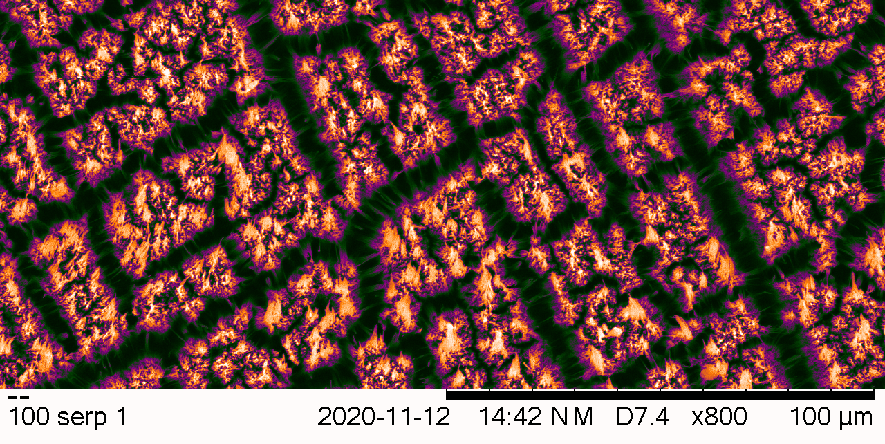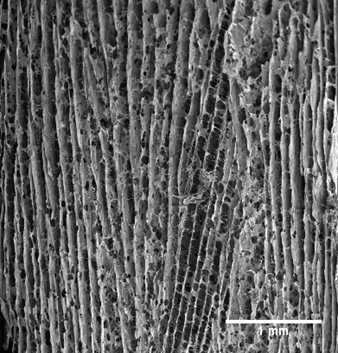
The Department has strong and diverse interests in the study of polymers and macromolecular materials for diverse applications in medicine, energy harvesting and storage and fuel cells.
Synthetic resorbable polymers can be applied in a range of medical applications including cardiovascular stents and orthopaedic implants.
Biomacromolecular 3D engineered environments are the subject of research for applications in tissue engineering and regenerative medicine. Collagen based materials are a major focus of research with target applications ranging from cardiac repair to breast cancer research and from bioreactors for blood products to dermal and neural repair, in addition to orthopaedic and dental implants.
Conjugated polymers are exploited for their light-harvesting, light-emitting and charge transport properties to develop interfacial layers for organic solar cells and optical sensing platforms. The design of new organic-inorganic hybrid polymers is also under investigation, with applications as optical waveguides for fibre optic sensors and luminescent solar concentrators or as polymeric nanocapsules for drug delivery, cell imaging and catalysis.
There is growing evidence that biological systems are exceptionally sensitive not only to their chemical environment, but also to their mechanical environment. Understanding exactly how biology responds to these physical stimuli could have significant implications for biomedical implants, regenerative medicine and bio-inspired devices. Biological piezoelectric nanomaterials and devices are being developed to interface electromechanically with cellular systems, with the view of creating novel non-destructive and non-invasive tools for mechanobiology.
Banner image: False-coloured SEM image of arrays of piezoelectric poly-L-lactic acid nanowires (Credit: Thomas CHalklen and James Laudage)
Image below: SEM image of an oriented pore structure within a collagen scaffold (Credit: Dr Helen Smalley)

